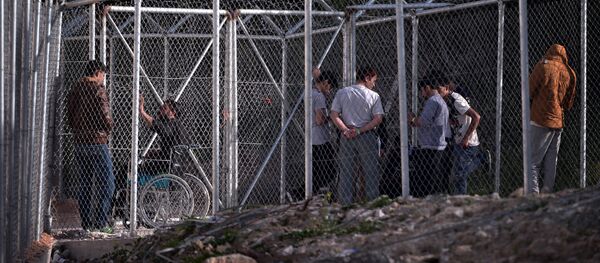Hungary's NGO Law
The European Commission has decided to take Hungary to the Court of Justice of the European Union over its law on foreign-funded nongovernmental organizations (NGOs).
READ MORE: ECJ Ruling On European Migrants Shows All EU States Must Accept Refugees — NGO
Hungary has not amended or repealed the contested provisions of the NGO law in compliance with EU legislation, the Commission said, explaining its move to refer the case to the Court of Justice under Article 258 of the Treaty on the Functioning of the European Union (TFEU).
For breaches of EU law, we pursue legal action against Member States for failing to comply with their obligations: https://t.co/1GPlj6yw4x pic.twitter.com/Wm9Eqkqpka
— European Commission (@EU_Commission) December 7, 2017
Hungary's government has repeatedly criticized NGOs, namely those linked to financier and open society campaigner George Soros, of driving a political agenda that supports mass illegal migration into Europe from the Middle East and North Africa, referring to the so-called "Soros plan".
READ MORE: 'Soros Plan': Why Hungarian PM Blasts US Billionaire for Destabilizing Europe
Prague, Budapest, Warsaw in Defiance of Migrant Quota
On Thursday, the European Commission also made a decision to proceed to the legal actions against the Czech Republic, Hungary and Poland as they had failed to comply with their obligations on the relocation of migrants.
"The replies received [from the Czech Republic, Hungary and Poland] were again found not satisfactory and three countries have given no indication that they will contribute to the implementation of the relocation decision," the statement read.
READ MORE: Rights and Obligations: All EU States Must Heed 'Command Decisions' on Refugees
The heads of the EU interior ministries adopted the European Commission’s proposal on the distribution of 160,000 undocumented migrants in Italy and Greece, across the European Union under a quota plan in September 2015, which caused resentment among some European countries.
The external dimension of #MigrationEU policy needs to be consolidated by:
— European Commission (@EU_Commission) December 7, 2017
— ensuring full implementation of the EU-Turkey Statement
— mobilising additional resources for the EU Facility for Refugees in Turkey
— reinforcing the strategic partnership with the African Union pic.twitter.com/7hrKD8NcZ7
Slovakia, Hungary the Czech Republic and Romania voted against the implementation of the decision in the EU Council and asked the Court of Justice to annul the decision, however the legal actions were dismissed since, according to the EU officials, quota plan was adopted by the EU institutions to effectively respond to the influx of migrants and refugees.
The EU needs a robust and effective system for sustainable migration management for the future.
— European Commission (@EU_Commission) December 7, 2017
The weaknesses in the design and implementation of the current EU asylum system have led to differing treatment of asylum seekers & varying recognition rates across the EU#MigrationEU pic.twitter.com/ty03DwxAid
Poland, in turn, has repeatedly declared it would not allow refugees into the country even if the EU Court of Justice urges the country to accept its decision.
Poland to Refrain From Accepting Migrants
Meantime, Warsaw will not agree to take in migrants, even given the fact that the European Commission has an open lawsuit against the country over its failure to meet its obligations under the EU relocation scheme, Polish Interior Minister Mariusz Blaszczak was quoted as saying by Polish TV on Thursday.
"This is the issue of our citizens’ security. In some countries, there are Muslim settlements, where people are afraid to leave their homes when it gets dark. As long as I am minister, I will not allow the same to happen in Poland … The government of the Law and Justice [Poland’s ruling political party] assumes that it is not for foreign states, but for the Poles to decide, whom to let in their country," Blaszczak added.
"[The EU migrant relocation scheme] is a system, which has not proven effective. It brings threats, and whole cities are deteriorating over it. The communities arriving in Europe are not integrating with local societies — they create basis for terrorism," the interior minister pointed out.
Blaszczak also noted that after communicating with Poles of German and French origin, he had realized that these individuals "may go out for a walk in the evening in Poland, but they cannot do this in German and French cities, because there is real threat there."




